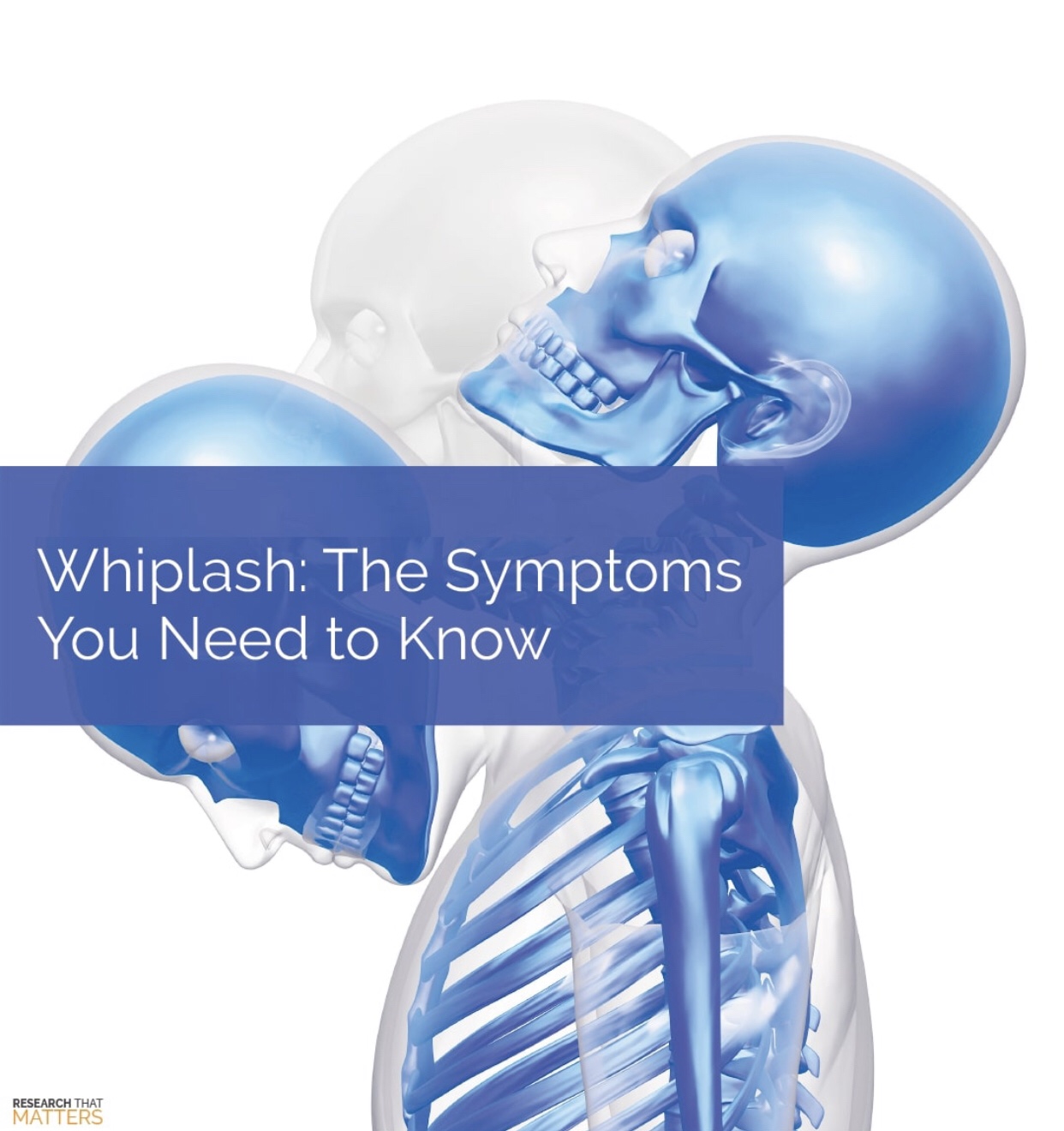Whiplash: The Symptoms You Need to Know
Whiplash Injuries
Whiplash is an injury that occurs when your body is suddenly forced backward and then forward. The ligaments that hold the 7 bones of the neck together are stretched and can become damaged, or even torn. Whiplash is the most common injury that happens during an automobile accident, and it’s one of the leading causes of chronic neck and back pain.
While a fender bender may not seem like a big deal, new research has shown that even small accidents can result in significant injuries to spinal ligaments.
Whiplash After Car Accidents
The violent forces that occur during an auto accident can cause damage to your spinal discs, ligaments, tendons, and bones – even at “low” speeds.
Most of these injuries happen because your head is whipped backward and forward very quickly. This rapid motion often results in sprained or torn ligaments and injured discs.
Symptoms such as neck pain, back pain, headaches, confusion, and even depression may indicate that you’ve suffered a whiplash injury.
You may not immediately notice any pain because of an adrenaline spike at the time of the accident. For many people, these symptoms develop over hours or even a few days and go unnoticed until the initial shock of the car accident has worn off.
Whiplash Recap
- Whiplash is an acceleration-deceleration injury that can affect your ligaments, spinal discs, muscles, and joints.
- Symptoms of whiplash may include neck or back pain, headaches, radiating pain, confusion, and difficulty sleeping.
- There is often a period of little to no pain before the symptoms of whiplash injuries worsen.
Have You Suffered a Whiplash Injury?
It’s smart to get a complete evaluation after an auto accident to minimize your risk of long-term pain. Getting the right care at the right time can make a big difference in your ability to heal quickly.
Remember, even small accidents can cause injuries, so if you’ve been involved in an auto accident, be sure to reach out to our office as soon as possible so we can help you get on the road to relief!
Kent Owens, DC
Science Source(s): Biomechanics of Whiplash Injury. Chinese Journal of Traumatology. 2009.

